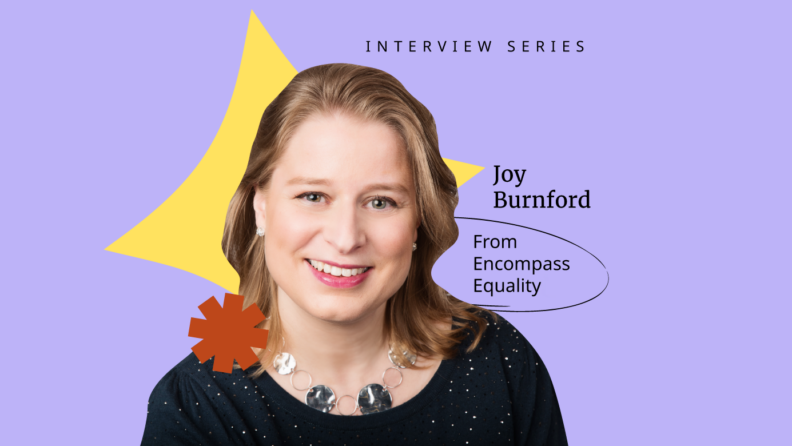We’re passionate about the world of work, and how we can make it better. To help satisfy our curiosity, we’ve launched an interview series where we pick the brains of experienced leaders, business owners, managers, and individual contributors to get their thoughts on how we can collectively build better workplaces.
We’d love to get to know you a bit better, tell us a bit about your backstory.
When I was growing up, my mum, Sue Peterson, was a single mother and worked tirelessly as a dance teacher and dance shop owner. She enabled my sister and I to have the strongest start in life, with the best possible education and opportunities; the story could have been so different.
She was—and is!—an amazing role model, and taught me that being a girl should not hold me back. She’s also just published her own book ‘Dance for your life: Steps to better health with stories to inspire’ just ahead of mine!
If we were to ask a friend to describe your personality to us, what would they say?
I checked with a colleague for this one and was flattered by her response! She described me as motivated, driven, kind, compassionate, and a natural connector in both personal life and business.

Thinking back to your career journey, what’s an interesting story that stands out?
When I set up my first business in 2007 I felt like a punch-bag, hitting stumbling blocks at every turn. I learned to not give up and stay resilient. A particular example was being told we needed to have a man on the board, but we successfully secured investment with two female board directors—something I’m very proud of.
Access to flexibility creates a happier, more engaged, trusted and motivated workforce, while also helping organisations retain talent.
What’s the most impactful lesson you've learned over your career thus far?
That confidence is a skill that can be learned. Despite my early ambitions, I found my confidence declined in my twenties. I was working in a male-dominated industry and found myself often comparing myself to others, leading to a rollercoaster of confidence.
Five years ago I discovered coaching where I learned that confidence is a skill that can be taught. This inspired me to set up my next business – My Confidence Matters, now called Encompass Equality – with the mission to enable women to have confidence to progress their careers.
Thanks for giving us some insight into who you are! Let’s jump into things. When you hear the phrase “build a better world of work”, what comes to mind?
For me, flexibility is key and I’m happy that it is now part of our working world in a way we could not have anticipated before the pandemic.
Access to flexibility creates a happier, more engaged, trusted and motivated workforce, while also helping organisations retain talent.
It’s key for working parents and is a huge factor in stopping mothers, in particular, and those with caring responsibilities, from leaving the workforce. Offer someone true flexibility and this allows them the freedom to fit work around their lives, rather than their lives around work.
I believe flexibility should go a step further and be personalised, to recognise that employees are individuals with differing needs depending on life circumstances.
I hope it will shape the way of working in the future for many businesses, allowing people to work in a way that suits them, ensuring it sits within the confines of organisational needs.
For you, what’s the main blocker you see as standing in the way of building a better world of work?
Gender equality remains a huge problem for businesses, so when contemplating how to ‘build a better world of work’, we must consider how workplaces can become more inclusive for women, which will, in turn, benefit all.
There is so much evidence on the business benefits of diversity, equity and inclusion, yet the loss of talented women from the workforce still exists across all sectors: one in three women considered downshifting their career or leaving the workforce in 2021.
Businesses need to wake up to this and start to make changes now to retain women and offer them the opportunities to progress.
What’s one thing within our control that we can practically do to build a better world of work today? And, how do you recommend going about it?
There are many practical steps that can be taken to improve gender equality. This topic is very close to my heart, as it’s the focus of my new book, Don’t Fix Women, in which I outline three cultural frameworks – flexibility, allyship and coaching – that companies can develop to ensure their working environments allow women to flourish, function, and crucially, remain.
By implementing these frameworks, businesses will create a level playing field not only for women, but all employees. And, in turn, it will develop a more diverse workforce which has a proven benefit to the bottom line.
Leaders and people managers need to recognise the obstacles that women face at work (which could be confidence, dealing with fertility problems or caring for a child or elderly relative), which can result in burnout, overwhelm, and, ultimately, women leaving the workforce.
There needs to be an effort within organisations to normalise conversations considered taboo (such as menopause), to allow more awareness of issues that women may face that can impact their working lives.
Schemes such as ‘growing your own’ coaches can help: where every manager is trained in key coaching skills, such as listening actively, expressing interest, offering honest feedback, and how to have sensitive and empathetic conversations.
Many managers remain painfully unprepared for the kind of conversations they need to have with women at various stages of their careers and this is vital in being able to support and retain women in the workplace. By gaining understanding, leaders can become allies for women and gender equality advocates.
Gender equality should be a top priority issue, which requires definitive action; this can’t be considered a tick-box exercise and must be led from the top if change is going to happen.
Can you share one thing you’ve experienced, seen, or read about that is leading us towards a better world of work?
I am often amazed that job sharing has not become more prevalent, particularly at senior levels, given the benefits it can offer.
I met with Charlotte Cherry and Alix Ainsley, who job-share the role of Director of Talent and Learning at John Lewis & Partners, and are the most fantastic example of how successful this can be.
Both women approached job sharing to find more balance at home, taking on their first shared role at Lloyds Banking Group in 2016 and subsequently moving together to roles at companies including Dyson and Quilter plc.
They have shown that job sharing does result in better work/life balance, but also recognise that their careers have accelerated at a faster pace thanks to the confidence that job-sharing has instilled in them both.
I’m curious, thinking about building a better world of work, is there a company and/or leader who stands out to you as someone we should follow? If so, what are they up to?
Nathan Coe, CEO of Auto Trader Group plc, stands out to me for his work towards gender parity—Auto Trader is listed in the Inclusive Companies Top 50 2021/2022 with 50:50 gender parity on its board.
I consider Nathan to be an inclusive leader with diversity and inclusion in his DNA— a trait that is crucial to implementing real change in businesses in the future.
I spoke with Nathan and he shared the following advice to other organisations looking to achieve better retention of women:
“Without doubt, change requires passion, empowerment and a belief right from the very top of the organisation to make the change happen and to call out behaviour or practice that is exclusionary. Too few at the top of organisations are talking passionately about this topic and yet we, as leaders, have a duty to ensure that women feel included and have the same access to careers that male colleagues have.”
How can our readers follow your work?
Continue the conversation at www.dontfixwomen.com and connect with me on LinkedIn.
Thank you for adding your voice to People Managing People’s interview series on How to Build a Better World of Work!
Add your voice to the conversation
Join our interview series and share your ideas for how we can build a better world of work!


